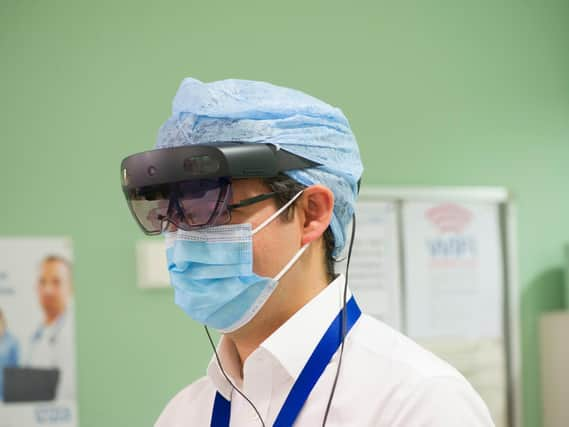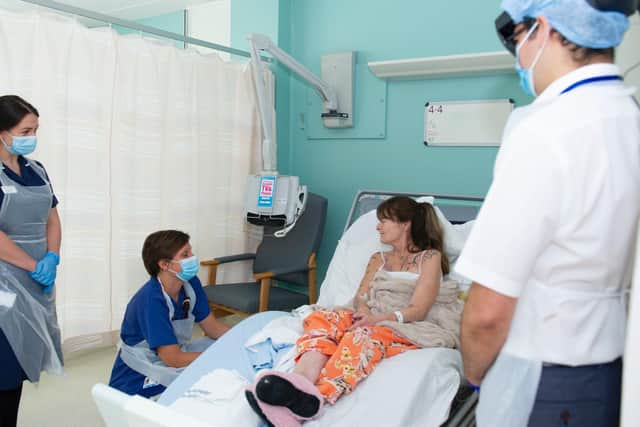Live-streamed virtual hospital ward rounds for Leeds medical students during Covid-19 pandemic


The Microsoft HoloLens2 device means virtual ward rounds are now on the timetable for students on placement in the Leeds Cancer Centre after the actual ward rounds were cancelled as patients are particularly vulnerable to infection.
The mixed reality device can also be used to live-stream from patient consultations and operating theatres at Leeds hospitals.
Advertisement
Hide AdAdvertisement
Hide AdIt is being pioneered in Leeds Teaching Hospitals NHS Trust to carry out hospital-based teaching while maintaining a safe clinical environment.


The wearable headset can live stream clinical situations and allows two way communication in mixed reality for teaching and training.
The trust said Covid-19 pandemic has had a significant impact on undergraduate and postgraduate clinical education and training across the NHS because of the need to reduce the spread of the virus and protect patients, staff and the medical students themselves.
X-rays, blood results and scans can also be viewed using the technology.
Advertisement
Hide AdAdvertisement
Hide AdDr Andrew Lewington, the trust's associate medical director for medical education, and Dr Shefali Parikh, a clinical leadership fellow in the medical education department, are leading the programme to deliver undergraduate and postgraduate education using the new technology.
Dr Lewington said: “It is vital that the training of medical students continues despite the current situation with Covid-19, and finding this innovative solution protects patients and staff while still delivering student training.
“Online resources for medical training have long been required, but their production has rapidly accelerated in light of the impact of Covid-19 and the urgent need for remote education using mixed reality technologies.”
Dr Gemma Dart and Dr Dan Lee from the Leeds Cancer Centre, together with Tobias Mill, a fourth-year medical student, piloted the first remote teaching ward round at the centre.
Advertisement
Hide AdAdvertisement
Hide AdThe experience prompted one patient to say: "It limits the number of people at the bedside which is very important at this current time. This also means it feels more personal during
the consultation."
One medical student said: "It was a proper teaching ward round - it was tailored to our learning, and very engaging."
Comment Guidelines
National World encourages reader discussion on our stories. User feedback, insights and back-and-forth exchanges add a rich layer of context to reporting. Please review our Community Guidelines before commenting.